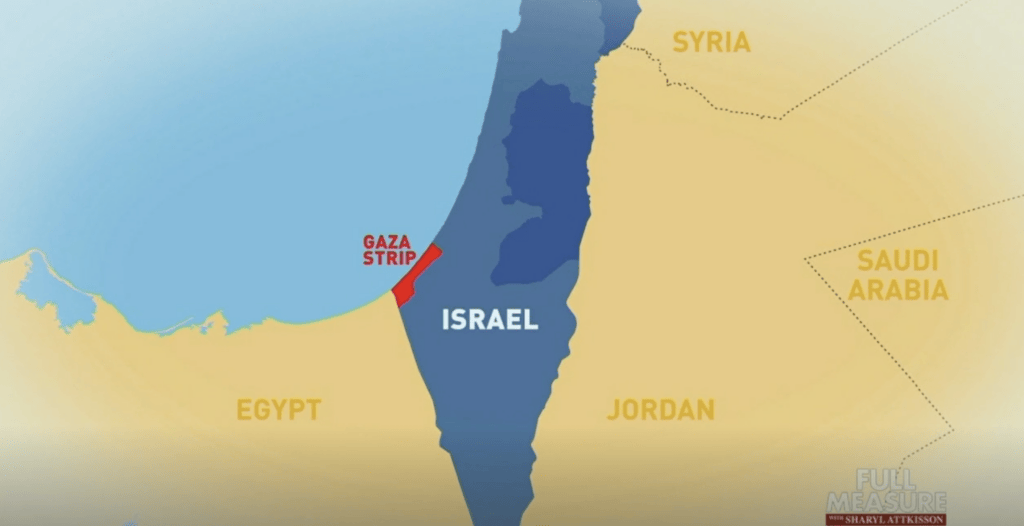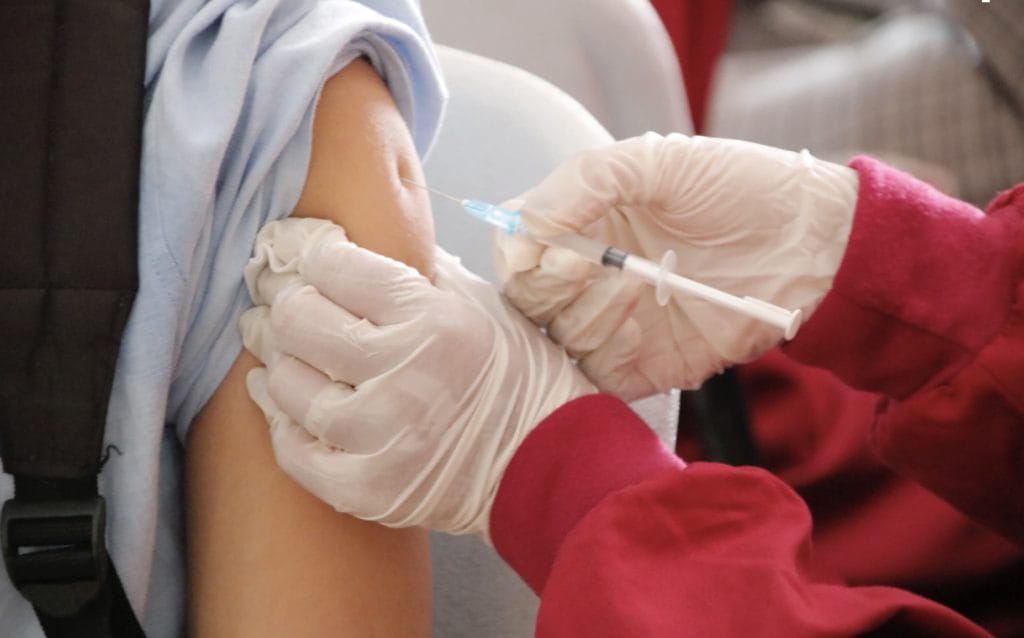We begin with the war in the Mideast, prospects that it could expand beyond Israel, and the impact on the U.S. Hundreds of thousands of Israeli troops are awaiting orders to launch a ground assault on Gaza, the strip of Palestinian-controlled land on the southwest corner of Israel, along the Mediterranean Sea. It’s been two weeks since the Islamic extremist terror group Hamas attacked Israel from Gaza, killing and injuring thousands. Today we speak with Eliav Benjamin, deputy ambassador of Israel to the United States.
The following is a transcript of a report from “Full Measure with Sharyl Attkisson.” Watch the video by clicking the link at the end of the page.
Sharyl: Strategically, what is it that you think Israel must do in the coming weeks, months, and maybe even years?
Eliav Benjamin: So we came out declaring and stating that our objective with this war, which was forced upon us, is once and for all to get rid of Hamas. And when we say getting rid of Hamas, it means the goal being having Israeli citizens feel safe and secure — not just those who live around Gaza, who deserve it the most, but everybody around Israel. And the way of going about it is decapitating the ability of Hamas for ever carrying terrorism activities against Israel again, number one. Number two is basically taking away their ability to control Gaza. And the goal for us is to make sure that they do not govern there because their governance affects Israel and is threatening and has been threatening Israeli cities, villages, neighborhoods, and citizens around the country.
Sharyl: If the enemy is willing to hit civilians and not follow any rules, but you’re expected to never do that while they’re using human shields around their munitions and areas they’d like to protect, how can you successfully prosecute a war?
Benjamin: It’s a good question, Sharyl. We adhere to the international law. We adhere to international humanitarian war. While we are at war, I could stoop down as low as Hamas. It’s not the way that we operate. We are a humane society, the — by Jewish law, but even by any human law, logical law, which is who we are and what we are. So while we are fighting the terrorists and fighting Hamas and pushing them back and crushing them as strong as we possibly can, we are also doing our utmost to keep innocent civilians out of harm’s way. And anything short of that is not Israel.
Sharyl: I suspect you might say that one reason the U.S. cares and should care about what happens to Israel is just a matter of, we are like-minded on many things, that Israel is a strong ally. But what are the practical reasons you would tell Americans?
Benjamin: So naturally, there is the very close bond between Israel and the United States, between Israelis and Americans. But it’s not just that. It definitely is far more that, especially with such an attack now. When we are saying that what Hamas is doing is worse than ISIS, or that this is our 9/11 times — 12 times, if you take the proportion of population — this resonates. But it doesn’t make, it doesn’t need much persuading from our end for it to resonate. Because Hamas is not just after Israelis. It’s not just after Jews. There were at least 41 nationals or nations whose people within Israel were either killed or injured or kidnapped by Hamas with what they raided on Oct. 7. Forty-one nationals at least. So yes, today it’s Israel. Tomorrow, it could be any other country or any other citizen of any other country around the world. And this why this does and should resonate also with Americans.
Sharyl: There’s some criticism in the United States, as I’m sure you’ve heard, that the botched American withdrawal from Afghanistan, unfreezing money for Iran that the United States had control of, in essence paying or trading for hostages — do you think any of that, or any perceived weakness on the part of American leadership, made it seem to Hamas like this was a time to attack?
Benjamin: It’s difficult for me to become a psychologist for Hamas and to try and explain what their motives were, but I don’t think, I don’t think the American part of the equation was taken into consideration. For instance, looking at the events unfolding in Israel over the past 10 months, over the whole, what’s known as the judicial reform process and internal debate, and sometimes even unrest, thinking that this is the weakest Israel that they’ve ever found, and this is the right time to strike. They were looking at the whole normalization process that Israel with, led by the United States, of course, is conducting with the Arab world, and in particular now with Saudi, thinking that they could jeopardize this. Because any normalization with the Arab world, again, goes against the extremists. It goes against Hamas. So this is their intention, perhaps to derail these things as well. Which again is a wrong calculation because all our Arab friends, even if they won’t come out publicly, unfortunately, in saying so, they are against Hamas. They are against this extremism. They are against terrorism throughout, and they’re in favor of Israel fighting and crushing, crushing Hamas.
Sharyl: If the goal is to decapitate Hamas once and for all, is this something that you envision takes weeks, months, or years?
Benjamin: It took the U.S. four years to take out ISIS, and it’s still at it. And the whole world is still at it, but led by the United States. True, spread all over, but we know where they were focused more or less. It could easily take, and it will easily take weeks. Whether it takes months or years, it’s difficult to know because unfortunately, there are Hamas cells all over. There are Hamas cells in Lebanon, there are Hamas cells in Turkey, there are Hamas cells in Qatar, and probably in other countries as well. And I’m not even talking about those terrorists who may still be in Israel after infiltrating on Oct. 7. So it could take a while, but we are determined, may the price be as it as it may. What we’ve done over the years, when we had what’s known or nicknamed the “cycles of violence,” we kind of put a patch on it, put a Band-Aid on the situation. It was probably a mistake at the time, because this allowed over the years for Hamas to continue arming itself and financing itself and training its operatives together, of course, with the backing of Iran and other good friends of theirs. Maybe we should have done this years ago, and then we wouldn’t have reached this horrific attack that they conducted on Oct. 7. But there is also a very, very clear sense of determination of all Israeli society that now is the time to crush them once and for all.
Watch story here.

Visit The Sharyl Attkisson Store today
Unique gifts for independent thinkers
Proceeds benefit independent journalism



